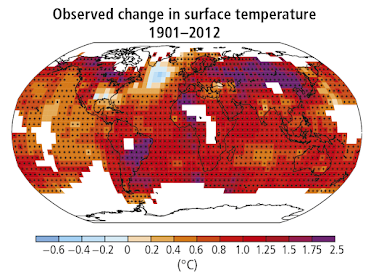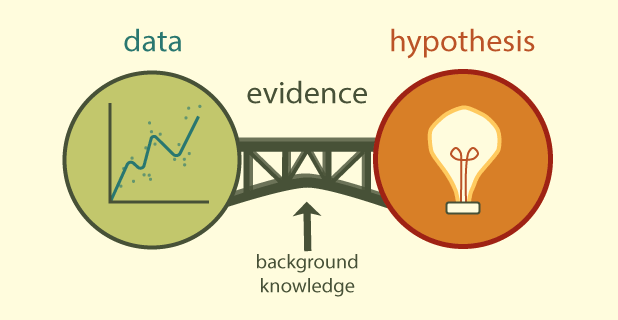Media
Media: news, articles, & essays
Examining the facts about contraceptives as birth control misinformation spreads online
PBS News Hour interview with Dr. ChoGlueck on medical misinformation about contraception. The side effects of birth control are real, but beware influencers online!
"I think the existence of these side effects isn't evidence that these contraceptives aren't safe, but they might be evidence that we want to develop even safer means of contraception for everybody."
 Amid the battle over abortion rights, a failure to agree on how to define abortion
Amid the battle over abortion rights, a failure to agree on how to define abortion
A story on debates over medical terminology and what counts as "pregnancy," "abortion," and "miscarriage," including an interview with Dr. ChoGlueck on the ethical and political stakes of definitions related to contraceptive access:
"Emergency contraceptive pills work by preventing sperm and egg from ever meeting. ... But when the emergency contraceptive pill Plan B was undergoing FDA approval in the 2000s, an anti-abortion science adviser used a fringe interpretation of the scientific evidence to convince the agency to list preventing implantation as one of the drug’s possible mechanisms of action, said philosopher of science Christopher ChoGlueck from New Mexico Tech. That claim remained on Plan B’s label until 2022. ... But for a small number of people, preventing a fertilized egg from implanting is 'what they would consider murder,' ChoGlueck said. Because of the potentially drastic consequences, [anti-abortionists are] extremely reluctant to accept that emergency contraception does not cause abortion. 'What I would argue is that no amount of evidence is ever going to convince them,' ChoGlueck said."
Reproductive Health Clinicians Can Improve Access to Emergency Contraception
An interview for the Contraceptive Technology Update (Continuing Medical Education platform) with advocates and researchers including Dr. ChoGlueck about how clinicians and providers can improve access to EC in their communities:
"Family planning clinics and OB/GYN offices could keep EC on hand to dispense to patients in need, suggests Chris ChoGlueck, PhD. 'Have it on hand for patients who are sexually active and don’t want to be pregnant. The whole idea of Plan B is a lot of people don’t expect to use it,' ChoGlueck explains. 'You don’t expect a fire in your house, but you keep a fire extinguisher.'"
 Masculinity, a barrier to co-responsibility in contraception
Masculinity, a barrier to co-responsibility in contraception
An article in the Catalonian magazine Directa by sexologist Mariona Guijarro Ferrer, about Dr. ChoGlueck's research on gender bias in male contraception trials (translated from Catalan):
"Researcher Christopher ChoGlueck described, in an article published in 2022, the double standards that occur in clinical trials. This phenomenon explains the differential evaluation of the side effects made by the same researchers of male contraceptives, based on gender norms. It is exemplified through the case of the interruption of a clinical trial due to the possibility of causing pain (due to the injection), changes in libido and depression, effects similar to those that have been assumed for decades in the field of 'female contraception."
FDA’s Change to Emergency Contraception Labeling Is Good News for Women
A follow-up interview for the Contraceptive Technology Update (Continuing Medical Education platform) with Dr. ChoGlueck about the FDA's decision in December 2022 to finally revise Plan B's label to remove the scientifically outdated, misinformative claim that it "may also prevent implantation":
"The labeling change means states that enacted personhood laws have no FDA-label or scientific justification for including Plan B in their abortion bans. 'The language on their website says there is no evidence to support saying Plan B has an effect after fertilization,' ChoGlueck says. 'These changes by the FDA remove it from threats from other abortion legislation, so that’s all very good and is a really important move for increasing access and for reproductive liberty.'"
 The Long Campaign to Turn Birth Control Into the New Abortion
The Long Campaign to Turn Birth Control Into the New Abortion
The Reveal podcast (UC Berkeley & Mother Jones) about scientific misinformation spreading on TikTok features an interview with Dr. ChoGlueck on how emergency contraception gets wrong conflated with abortion (starting at minute 11:30).
"It's a really interesting case that exemplifies how values influence science judgment. But also how the antiabortion movement has been able to place scientists into very powerful roles to impose their values on everybody."
LISTEN to the full podcast AT REVEAL
Plan B Is at Risk in Post-Roe America
This story on Bloomberg includes Dr. ChoGlueck's research on the mechanism of emergency contraception:
"Some of the issues trace back to outdated language in Plan B’s labeling, which says the drug may prevent “attachment of a fertilized egg to the uterus,” a process known as implantation. ... 'The history of Plan B is kind of a black eye in the face of the FDA,' says Christopher ChoGlueck, an assistant professor of ethics at New Mexico Tech whose research focuses on how antiabortion advisers to the agency influenced the drug’s label in the early 2000s. 'It’s a really nefarious case of providers and advisers imposing their values on evidence.'"
Future of America’s most popular emergency contraception is complicated by misinformation
This story on CNN and Scientific American includes Dr. ChoGlueck's research on the mechanism of emergency contraception:
"Despite having no scientific evidence to support that claim, the company agreed to list the post-fertilization mechanism on the packaging as a way of getting the application approved. That seemingly innocuous capitulation has paid dividends for abortion opponents, codifying in official government documents a mechanism of action that would be used to blur the line between contraception and abortion, said Christopher ChoGlueck, an assistant professor of ethics at New Mexico Tech who has documented the history of emergency contraception."
READ MORE AT CNN READ MORE AT SCIENTIFIC AMERICAN
Now Is the Time to Change Label on Emergency Contraceptives
An interview for the Contraceptive Technology Update (Continuing Medical Education platform) with Dr. ChoGlueck about the stakes of Plan B's outdated FDA label:
"There could be a shift toward attacking contraceptives among conservative lawmakers, starting with Plan B. “They’re easy to go after,” ChoGlueck adds. “Also, a lot of states have these conscientious objector laws or religious freedom laws, which often are pretty vague, that say if you have a moral objection to this, you don’t have to provide it to anybody, and you get to decide what is wrong."
It is critically important to maintain Plan B access in states that ban abortion. Emergency contraception can prevent pregnancy when couples have unprotected sex, or when condoms break. "Plan B is an important part of the contraceptive toolkit, especially with the changes in abortion laws,' ChoGlueck says. "The really scary thing is that, in some ways, Plan B will be the last legal line of defense."
Can science be value-free? The “gap” argument
If scientists are in the business of facts, is there still space for human values? Like many other scientists-in-training, I used to think of the sciences as ideally free from societal values, such as environmentalism and feminism. But, if values and biases don’t necessarily result in “bad science,” then why do people hold the value-free ideal?
 Hysterical Housewives, Radical Feminists, and The Gendering of Expertise About The Pill
Hysterical Housewives, Radical Feminists, and The Gendering of Expertise About The Pill
In January 1970, US Senator Gaylord Nelson began collecting testimony from “the experts” about oral contraception. Although women contributed to the Nelson hearings as experts and as protesters, sexist gender norms about expertise shaped who was seen as credible and who was thought to have disturbed the proceedings.
 Deceiving with doubt: How industry denies scientific evidence on the dangers of pesticides
Deceiving with doubt: How industry denies scientific evidence on the dangers of pesticides
The bias of industry-funded research is pervasive and well-documented. Companies regularly use this pro-industry science to cast doubt on research that hurts their bottom line. But how exactly does industry use science to defend their products? What’s the methodology behind their political strategy?
 Joining science to liberal arts: The many ways of doing history and philosophy of science
Joining science to liberal arts: The many ways of doing history and philosophy of science
As a graduate student in an HPS department, I find myself having to explain what exactly “HPS” is to friends, family, and strangers. I am met often with blank stares, gaping mouths, and cautious nods.
 Sexual science: An interview with Justin Garcia
Sexual science: An interview with Justin Garcia
“Our sexuality is becoming digital,” notes Dr. Justin Garcia, a leading expert in modern human mating. While new modes of sexuality and romance bring benefits, they also invite ethical questions. Take the phenomenon of “sexting,” the transmission of sexual images and messages via mobile phone or other electronic media. After discovering that sexts are shared on average with more than 3 friends—and at even higher rates by men than women—Garcia and his colleagues wondered: How does consent work when an intimate message can be both unsolicited and then widely shared? How do the risks of non-consensual sharing differ for women versus men?
 The process of science and politics and the risks to education
The process of science and politics and the risks to education
(Co-authored with Briana K. Whitaker)
Legislation that artificially limits the ability of bright individuals to enter graduate school unjustly falls on the backs of students who are already struggling. In an era where governmental support for science funding is waning, our knowledge of the natural and human has perhaps never been more important. In a similar manner, improved knowledge of the political process can help us to better understand its connection to and impact on the scientific process.
 What are scientific facts?
What are scientific facts?
Whether it’s the “alternative facts” from politicians or the “fake news” from the media, facts are at the fore. While they can’t agree on much else, politicians, pundits, and the public do agree (mostly) about facts: facts are separate from fictions, they are reliable and authoritative, and, most importantly, they have something to do with (good) science. But, what exactly is a scientific fact?
 Science or politics? Reclaiming climate science for the people
Science or politics? Reclaiming climate science for the people
When scientists communicate with the public about politics, they often frame the issue as “science vs. politics.” For instance, some scientists champion speaking truth to power, while others suggest that they stay out of the political fray altogether. Both arguments assume that science and politics are independent and mutually exclusive. Furthermore, they presuppose that science could and should remain politically neutral. I’d like to discuss why this framing is problematic and how we might instead understand the political role of science.


/cloudfront-us-east-2.images.arcpublishing.com/reuters/J4Z4TXZOLJONHIUMPTRTHZDACE.jpg)

